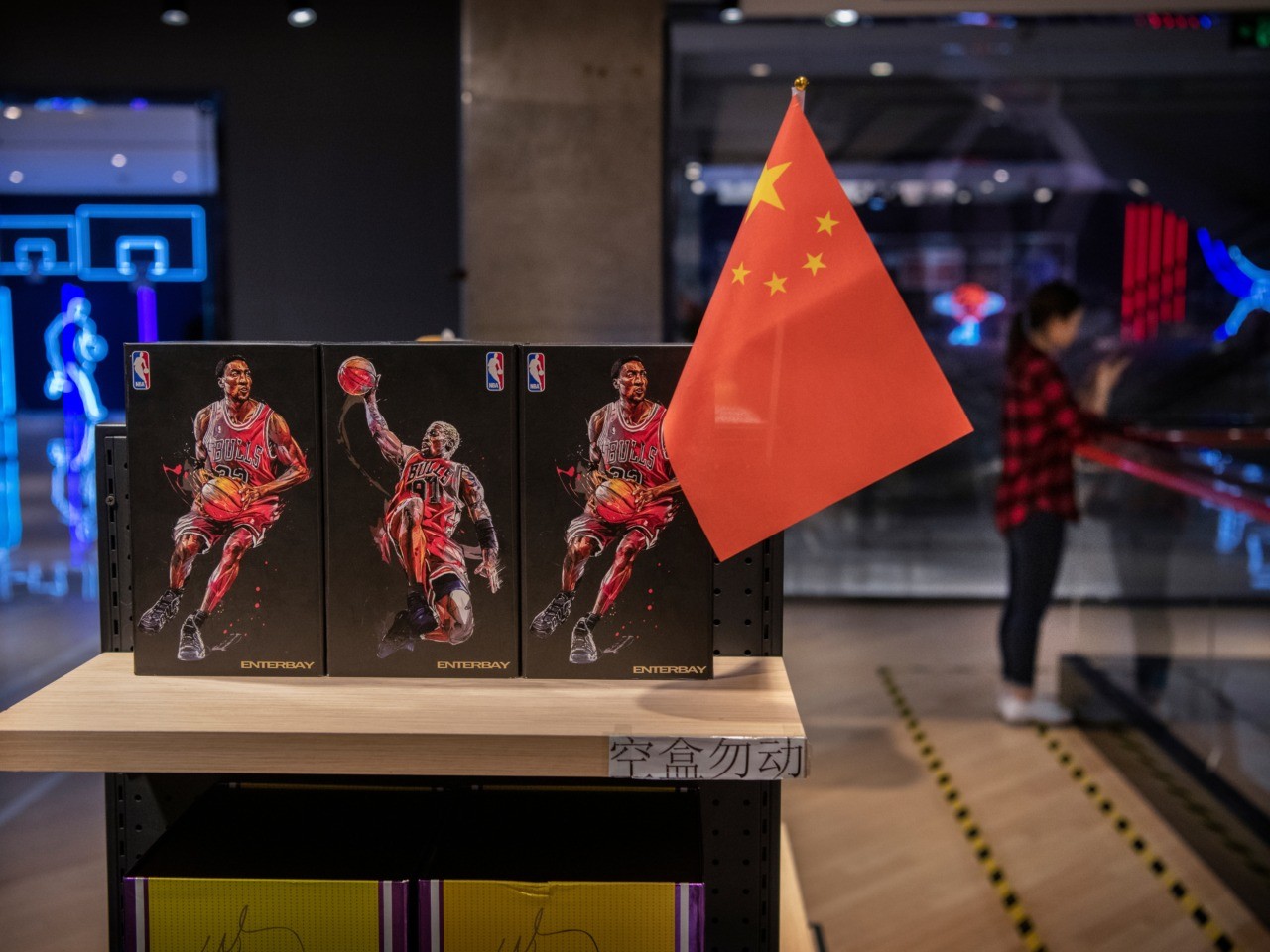China’s English-language state media had yet to weigh in on LeBron James criticizing public support for the pro-freedom Hong Kong movement on Tuesday, but did extend support to pro-China NBA “stars.”
The NBA is reeling from attempting to shut down the free speech of its employees following the decision by Houston Rockets general manager Daryl Morey to express support for the Hong Kong protests on Twitter. Morey was forced to delete the tweet and apologize while the league issued a frantic statement bowing to Chinese Communist Party pressure. Commissioner Adam Silver then attempted to mitigate American outrage at the NBA silencing Morey by saying his freedom of expression “is supported,” but not quite detailing by who.
The outrage from American fans – who flooded NBA stadiums for pre-season games with pro-Hong Kong t-shirts and signed condemning Beijing’s human rights abuses – reportedly triggered a decision among English-language Communist Party media to stop covering and condemning the NBA. The Global Times, which justified celebrating the September 11 terrorist attacks to spite Morey, went largely silent on the matter this weekend.
By Monday, the controversy had begun to die down when James attacked Morey in an interview for personally inconveniencing him, as James was traveling in China when Morey issued his tweet. James insisted that Morey should “educate” himself on James’ personal investments in China when exercising his right to free expression.
He attempted to end “confusion” on Twitter following his remarks by stating that he was not criticizing the Hong Kong protest movement or discussing the “substance” of China’s human rights atrocities. James made clear he was demanding the world take into account how defending human rights could hurt LeBron James’ financial interests and force him to confront difficult questions about doing business with an authoritarian regime.
China’s propaganda outlets have yet to comment on James’ remarks, but independently endorsed Chinese citizens remaining fans of his and other NBA players despite Morey’s remarks. In a column for China Daily, writer Zhang Zhouxiang condemned fanatical Chinese communists for harassing NBA fans and disparaging them as “kneelers” for bowing to the West by enjoying a sport.
“When the Wall Street Journal published a photo of two Chinese fans at one of the events on its cover, some domestic micro bloggers posted a photo of the page and called for people to find ‘the two traitors,'” China Daily noted. “This is too extreme. The two basketball fans have done nothing but watched a basketball game; How have they become ‘traitors’?”
The column took a moment to call Morey’s comments – in their entirety, they read, “Fight for freedom, stand with Hong Kong” – “wrong” and condemning Silver for saying that Morey “is supported” in his freedom of speech.
“Chinese companies and institutions meanwhile are right to suspend cooperation with the NBA because of the above. Nonetheless, that does not negate the right of Chinese basketball fans to watch NBA matches and join NBA activities as long as the activities and contests are simply basketball matches,” China Daily argued.
Perhaps because it was written prior to James’ comments Monday night, the column does not praise him personally, but instead comments Houston Rockets player James Harden for distancing himself from Morey and apologizing on his behalf.
“The stars have done nothing wrong and they should not pay for the wrongs of their colleague or boss,” the column concluded.
NBA players’ attempts to silence Morey resulted in the Chinese streaming service Tencent bringing back some games for streaming this week, which it had canceled in protest. The Houston Rockets remain offline to Chinese fans.
The Rockets are a particularly popular team in China because the nation’s most successful basketball player, Yao Ming, played for them. Yao is now the head of the Chinese Basketball Association, which the Global Times tried half-heartedly to promote as as “patriotic” alternative to the NBA last week.
“China’s domestic basketball teams, the companies that supply their products and the media outlets that cover them have an opportunity to reform and transform themselves into something bigger and better, and fill the void left by the NBA,” the Global Times claimed, citing “analysts.”
The NBA’s scheduled exhibition games in Shanghai and Shenzhen, the city just north of Hong Kong, went on as planned, however, attracting fans who loved the league too much to bother with a boycott; the “traitors” and “kneelers.” The South China Morning Post reported that the Brooklyn Nets, owned by pro-China mogul Joseph Tsai, and James’ Los Angeles Lakers nearly filled Shenzhen’s 18,000-seat Universiade Centre without a problem even after Morey’s tweet. In Shanghai, a small number of people attempted to protest the NBA, but China’s total ban on freedom of expression silenced them.
“If the NBA became harmful to China’s interests, we would reject it. But this wouldn’t be such a big deal if you foreign media would shut up about it,” a fan who wished to remain anonymous told Reuters, which noted that China rakes in over $4 billion for the NBA. The NBA notably runs a “training center” in Urumqi, the capital of the Xinjiang Uyghur autonomous region, where China has built thousands of concentration camps to eliminate the Uyghur ethnic group. China also calls its concentration camps “training centers,” denying the human rights abuses survivors have witnessed and denounced there.
